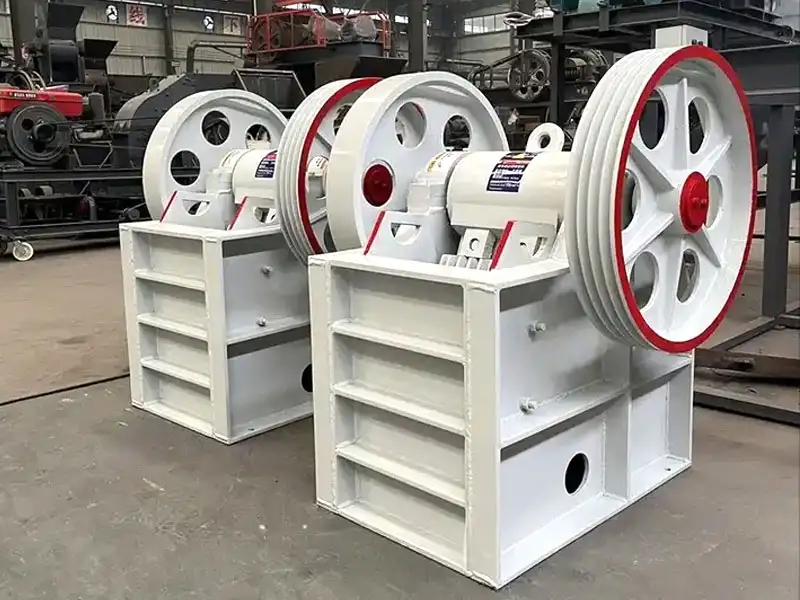Understanding Jaw Crushers: Essential Insights for Manufacturing and Processing
Sep 18,2025

Jaw crushers are a cornerstone in the realm of manufacturing and processing machinery, particularly in the mining and construction industries. Designed for breaking down large rocks and materials, jaw crushers utilize a compressive force to crush materials, making them invaluable in various applications.
At its core, a jaw crusher consists of two jaws—a fixed jaw and a movable jaw. The material to be crushed is fed between these two components. As the movable jaw oscillates, it approaches the fixed jaw, creating a compressive action that breaks the material into smaller pieces. This mechanism is instrumental in producing various sizes of crushed materials, which can be further processed or utilized in various industries.
One of the primary advantages of jaw crushers is their simplicity and ease of maintenance. Unlike other types of crushers, jaw crushers have fewer moving parts, which reduces the likelihood of mechanical failure and increases their operational lifespan. Moreover, their straightforward design allows for easier access during maintenance, thereby minimizing downtime and enhancing productivity.
Jaw crushers are highly versatile and can handle a wide range of materials, including granite, basalt, limestone, and even recycling material like concrete and asphalt. This flexibility makes them suitable for various applications, from large-scale mining operations to smaller recycling projects. Additionally, jaw crushers can be configured to produce different sizes of output material, catering to specific project requirements.
In the manufacturing process, the efficiency of a jaw crusher can be significantly influenced by several factors, including the material characteristics and the operational settings. Understanding these variables is crucial for optimizing performance. For instance, adjusting the gap between the jaws can control the size of the output material. Additionally, the feed size, speed, and the type of material being processed are essential considerations that impact the overall efficiency of the crushing operation.
Safety is another critical aspect when operating jaw crushers. Proper training for operators is necessary to ensure safe and efficient usage. Familiarity with equipment functions, as well as adherence to operational protocols, can prevent accidents and machinery damage.
In summary, jaw crushers play a pivotal role in the manufacturing and processing machinery sector. Their efficiency, versatility, and straightforward maintenance make them a preferred choice for many operations. By understanding the fundamental aspects of jaw crushers, professionals can leverage their capabilities to enhance productivity and achieve optimal results in their respective industries.
At its core, a jaw crusher consists of two jaws—a fixed jaw and a movable jaw. The material to be crushed is fed between these two components. As the movable jaw oscillates, it approaches the fixed jaw, creating a compressive action that breaks the material into smaller pieces. This mechanism is instrumental in producing various sizes of crushed materials, which can be further processed or utilized in various industries.
One of the primary advantages of jaw crushers is their simplicity and ease of maintenance. Unlike other types of crushers, jaw crushers have fewer moving parts, which reduces the likelihood of mechanical failure and increases their operational lifespan. Moreover, their straightforward design allows for easier access during maintenance, thereby minimizing downtime and enhancing productivity.
Jaw crushers are highly versatile and can handle a wide range of materials, including granite, basalt, limestone, and even recycling material like concrete and asphalt. This flexibility makes them suitable for various applications, from large-scale mining operations to smaller recycling projects. Additionally, jaw crushers can be configured to produce different sizes of output material, catering to specific project requirements.
In the manufacturing process, the efficiency of a jaw crusher can be significantly influenced by several factors, including the material characteristics and the operational settings. Understanding these variables is crucial for optimizing performance. For instance, adjusting the gap between the jaws can control the size of the output material. Additionally, the feed size, speed, and the type of material being processed are essential considerations that impact the overall efficiency of the crushing operation.
Safety is another critical aspect when operating jaw crushers. Proper training for operators is necessary to ensure safe and efficient usage. Familiarity with equipment functions, as well as adherence to operational protocols, can prevent accidents and machinery damage.
In summary, jaw crushers play a pivotal role in the manufacturing and processing machinery sector. Their efficiency, versatility, and straightforward maintenance make them a preferred choice for many operations. By understanding the fundamental aspects of jaw crushers, professionals can leverage their capabilities to enhance productivity and achieve optimal results in their respective industries.

